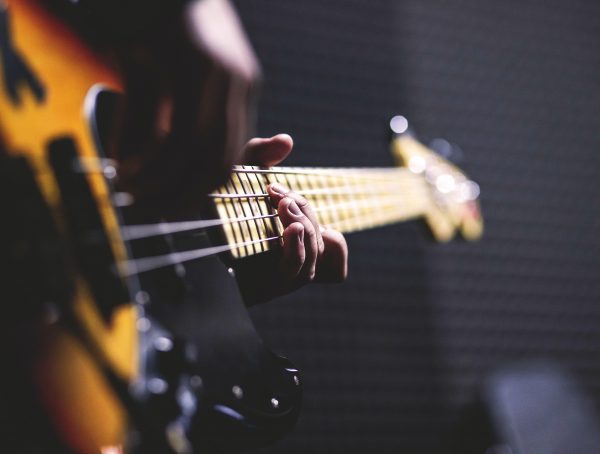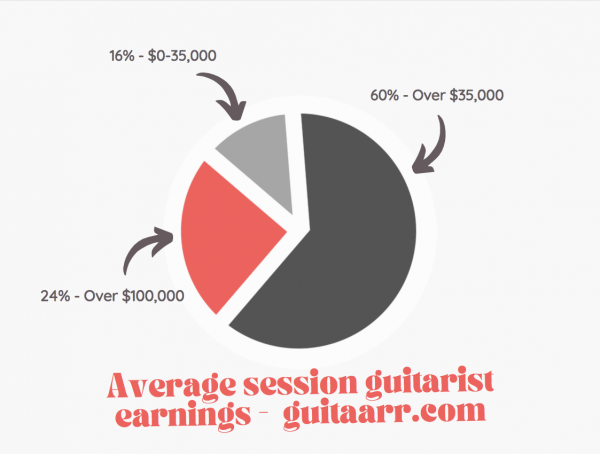To answer the question quickly – yes, you absolutely can. While a guitar teacher may be helpful for some people, they are by no means a necessity. If you either want the flexibility of learning yourself, or can’t afford the considerable sum it might cost to have guitar lessons once a week, you may want to go down the self taught route. This article aims to show you how that can be possible, and enjoyable, giving you resources and some top tips!
Why would you want to self-teach rather than pay for lessons?
Time
When you’re paying for virtual lessons (and especially when you’re travelling to a guitar teacher) you’ll find that lessons are at strict times, naturally to work into the plan of the day for the teacher. If you have a lot of free time that’s fine, but naturally if you’re trying to fit your guitar playing around a busy schedule then lessons at the same time each week can be quite hard to stick to.
When you’re teaching yourself, it’s to your time. Only got ten minutes today? No worries! Got a day off? Time to shred all day!
Save Money
There are tons of online resources where you can learn the guitar for free, some of which I’ve included in this guide. You can even find dedicated lessons on our site if you head to the blues licks lessons page.
And, even if you’re looking for something specific, the beauty is that this is the internet… there’s bound to be someone who has either made a video, a blog post or a lesson about a specific lick or style of guitar playing you’re looking to learn.
The average cost of a guitar lesson can be anywhere from $20 right up to $100, and potentially even beyond if you’re opting for a popular session player or well known musician. If you have the money to spend and aren’t worried about losing it through a lack of commitment, then that’s on you! But like most people who don’t want to waste money from the outset, getting a beginners guitar and making the most of free resources is the most cost-efficient way to go to begin with.
You’re not a people person
This might be one that is personal for me, but you’re somewhat of introvert then you’ll understand. Sometimes it’s a little overwhelming with face-to-face lessons, or having the pressure of sticking to someones schedule. When teaching yourself, it’s only your schedule (or lack of) that you have to stick to.
You want to learn at your own pace (with lessons styled to you)
This was a big one for me. I used to have free guitar lessons at school, but they were tailored to an entire class. This meant the same chord sheet each week, and the same boring songs.
Unless you have a guitar teacher who is briefed on the types of lessons you want, then it makes sense to set your own timetable and essentially a bespoke course if you’re looking to learn only a specific style or genre. And I’m by no means knocking free lessons or guitar teachers, it’s just the reality that a bad teacher can dampen your efforts from the outset.
Tips for teaching yourself how to play the guitar
Set your goals
If you get a guitar teacher, they will likely ask you in your first session what your goals are – what you want to be able to play, how much time you’re willing to dedicate, and any other motivating factors.
Without a teacher, you need to ask yourself those questions. If you just want to be able to strum the chords or your favourite song, that’s great, but if you want to be able to pick out the melody of a complicated Simon and Garfunkel number, it will require a different approach from the get go.
The basic chords are relatively easy to learn, and can be memorised in a few weeks. Building the foundations to play the guitar ‘properly’ however requires lots of practice, going over and over your scales and learning the theory behind the music. Be honest with yourself from the beginning, and you’re far more likely to be satisfied with the results you achieve, and not get frustrated!
Get social
One of the greatest motivating factors behind playing the guitar for a lot of people is being able to share the experience – whether playing around a campfire, or jamming with friends in their basement studio.
Playing with other people is a great way to stay excited, and a great way to learn. If you have friends who have been playing for a while, ask them for tips! They’ll most likely be more than happy to help out, and will have probably gone through all the struggles you’re currently dealing with. If you don’t have any friends who are into music, try going to your local guitar shop, or to open mic nights.
You don’t have to play, that may seem a bit daunting in the early stages, but you’re sure to meet some like minded people who are keen to share in your hobby.
Dedicate a set time
While the upside of not getting lessons is that you can set your own schedule, it’s also the downside. Many people struggle to stay accountable if there’s no one pushing them, and it’s important that you remain regular with your practice to see the improvements that make playing more enjoyable.
Try to set time aside, and make practice a pleasant experience! This is your hobby after all, you should be enjoying it. If you know that you’re tired at the end of the day, maybe try getting in a few minutes before you start work or school, while you’re still fresh and receptive. Practices don’t need to be long either, it’s much more important that they’re regular.
Even 15 or 20 minutes most mornings will see far greater improvements than sitting down for a few hours once a week. Just remember to keep it fun, that’s the whole point, and it’ll make you more consistent and therefore better in the long run!
Find good resources
While in the past it may have been much harder to teach yourself guitar, with the internet it’s incredibly easy to find blogs and videos which help you learn for free. This is great as it means that even if you don’t have much money, you can still pick up a guitar for next to nothing and use these resources to get you going. Below are listed a few of the best resources for self learning:
Youtube
GuitarJamz – GuitarJamz, run by Marty Schwartz, is a goldmine of videos. With hundreds of videos on his channel, there’s a whole lot to discover, especially for beginners. He has playlists with videos ordered by artists, so if you’re looking to play along to your favourite tunes, it’s worth seeing if he does any tutorials.
JamPlay – As well as offering paid for online lessons, JamPlay has an abundance of free resources on their YouTube channel. Offering tips for beginners and experts alike, it’s a great place to head if you’re stuck for inspiration. However, their free videos aren’t given in a structured setting like their paid for lessons, so it’s not the best place to go if you’re looking for a one size fits all approach.
Websites
Fender Play – Fender has one of the best learning sites on the market, and at £9.99 a month, it’s the same price as Spotify or Netflix. With guided lesson plans, it provides that extra bit of stability and planning that some people will need to thrive, all in an easy to use interface. You can choose your style (blues, rock, pop, folk or country) and your level, and then take it from there. It also comes with a 7 day free trial to see if you get along with the style. If you have a bit of money to invest in your playing, it’s certainly a good option to go with.
JustinGuitar online guitar lessons – Another excellent lesson plan, Justin Sandercoe provides world class lessons for literally all levels. Part of his ethos is to provide accessible music education, meaning that if you can’t afford to pay, it’s free. Some add ons are paid for, and he asks that you donate to his website if you can afford to, but if you just can’t quite get the funds together, then that won’t be a barrier.
Conclusion
If you take away only two things from this, it should be 1) that you absolutely can learn by yourself, and 2) that the best way to improve and enjoy learning the guitar is to be consistent. Using the resources above, you should be knocking out your favourite tunes in next to no time.
If you enjoyed this guide then you’ll also love:
More from Frequently Asked Questions
Can you play guitar with acrylic or long nails?
The short answer is yes, you can absolutely play the guitar if you have long nails, acrylic nails, fake nails... …
How Much Do Session Guitarists Earn? (2021 Poll Data)
There has been an argument for years now that the era of the session guitarist is long-gone. With nearly every …
How to protect your guitar from damage and theft
While your first guitar is unlikely to be worth more than a couple of hundred dollars, as you progress as …










